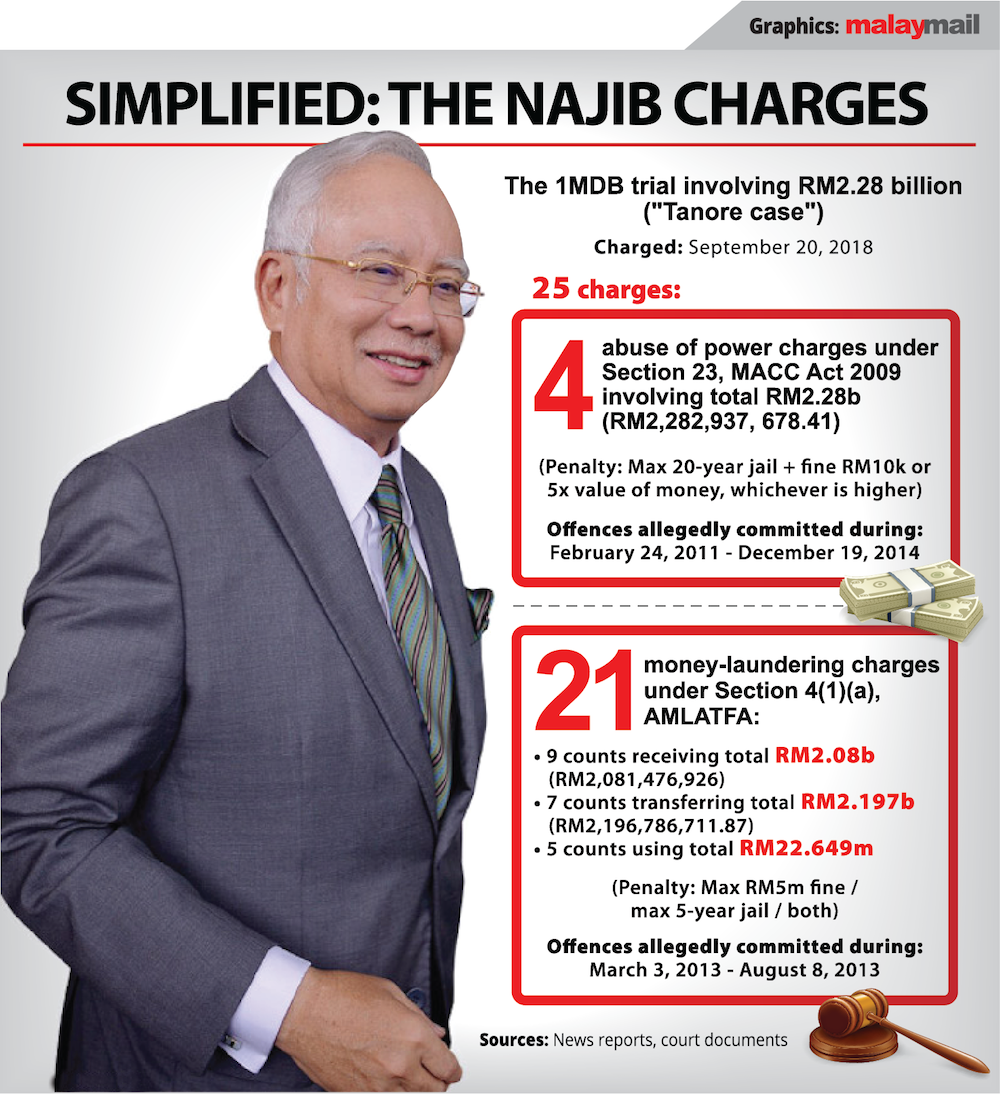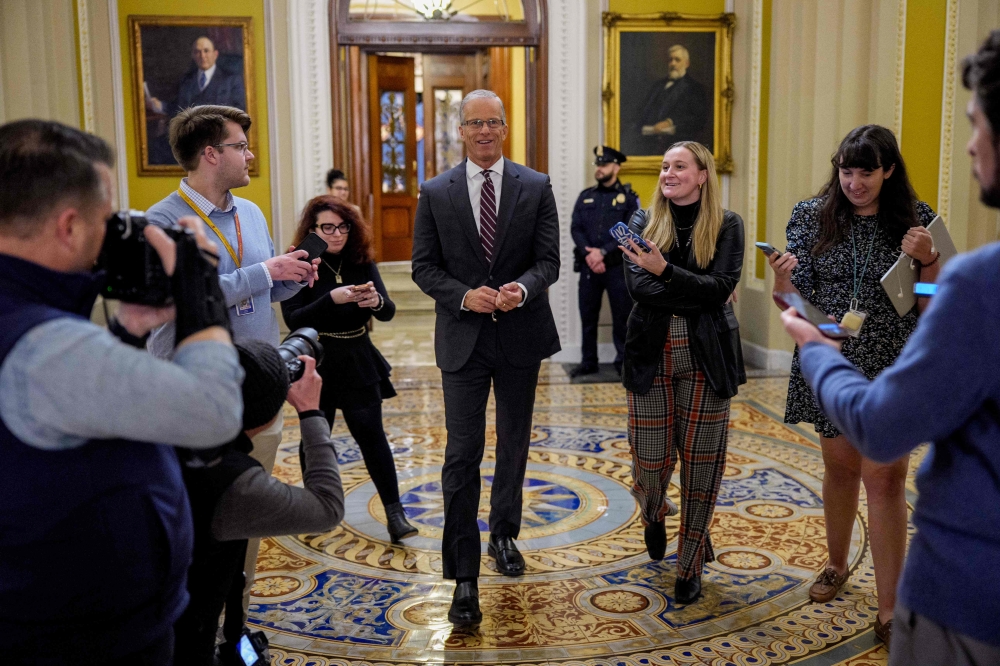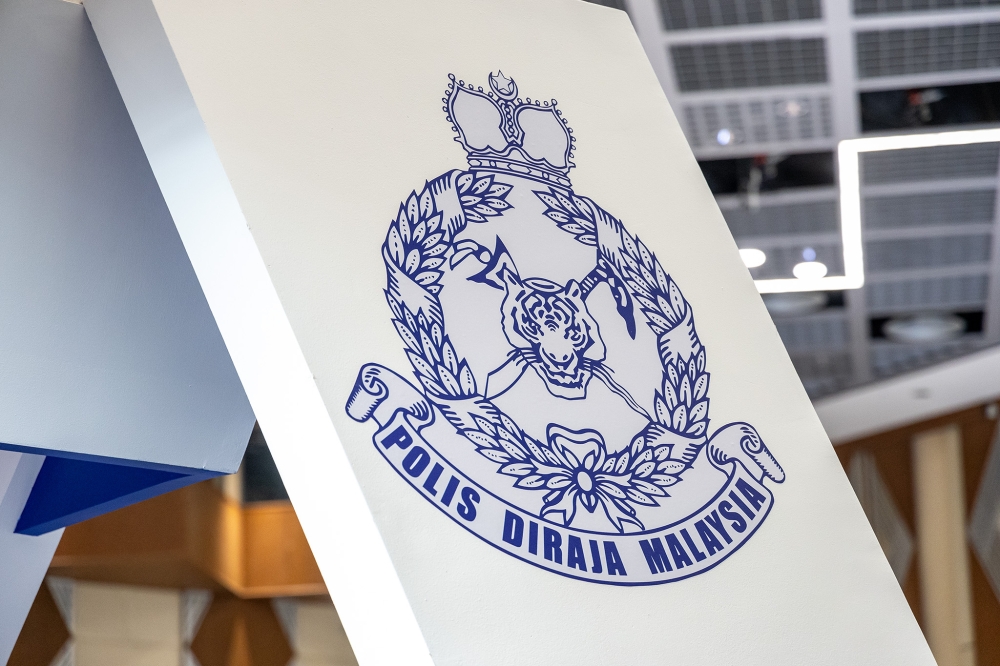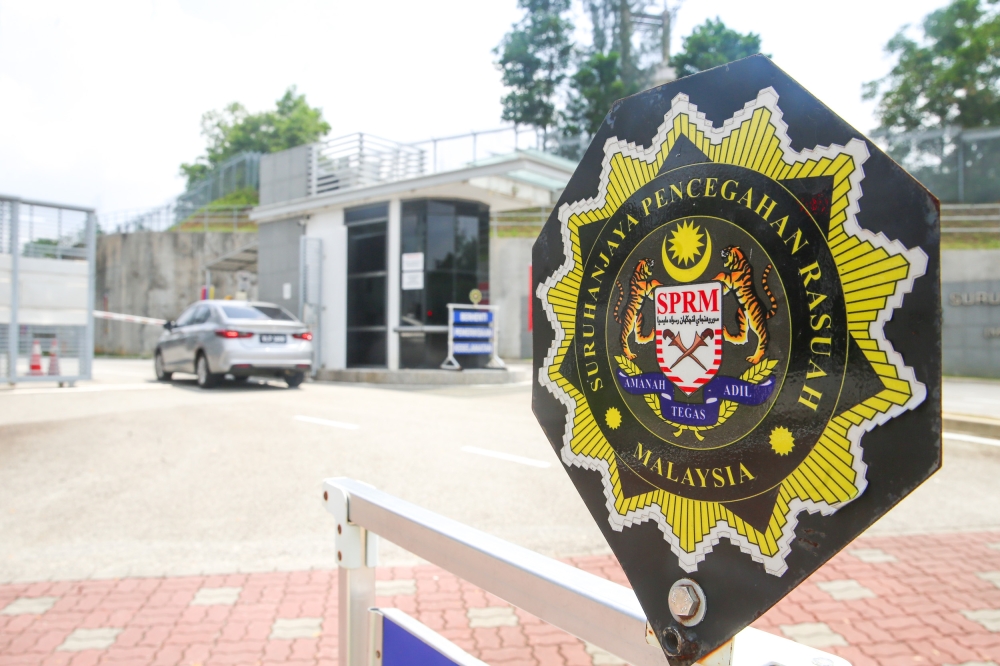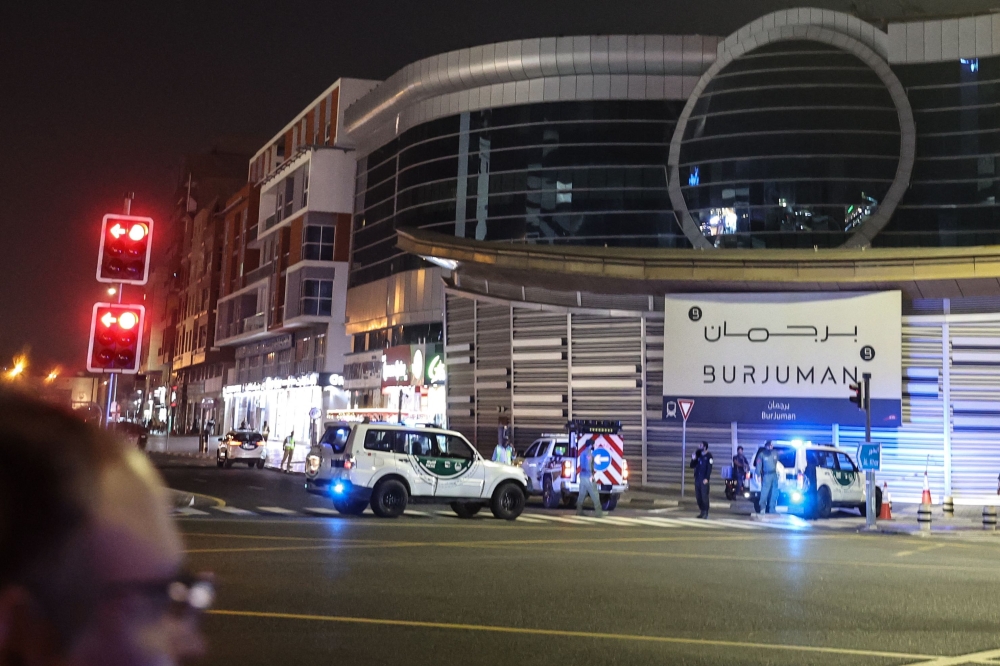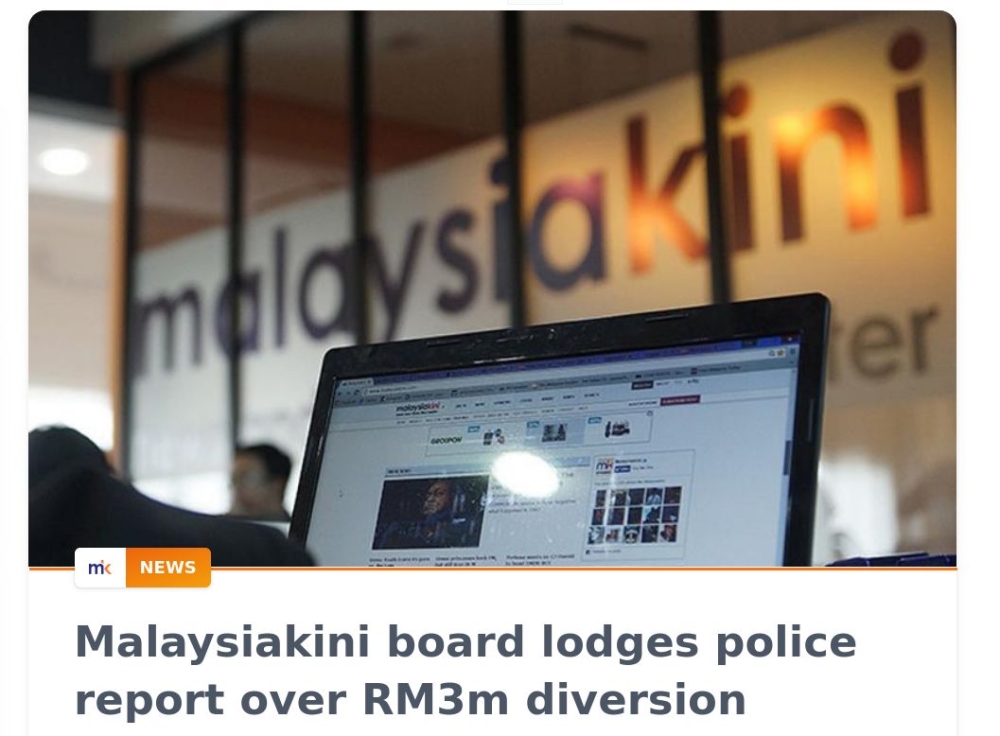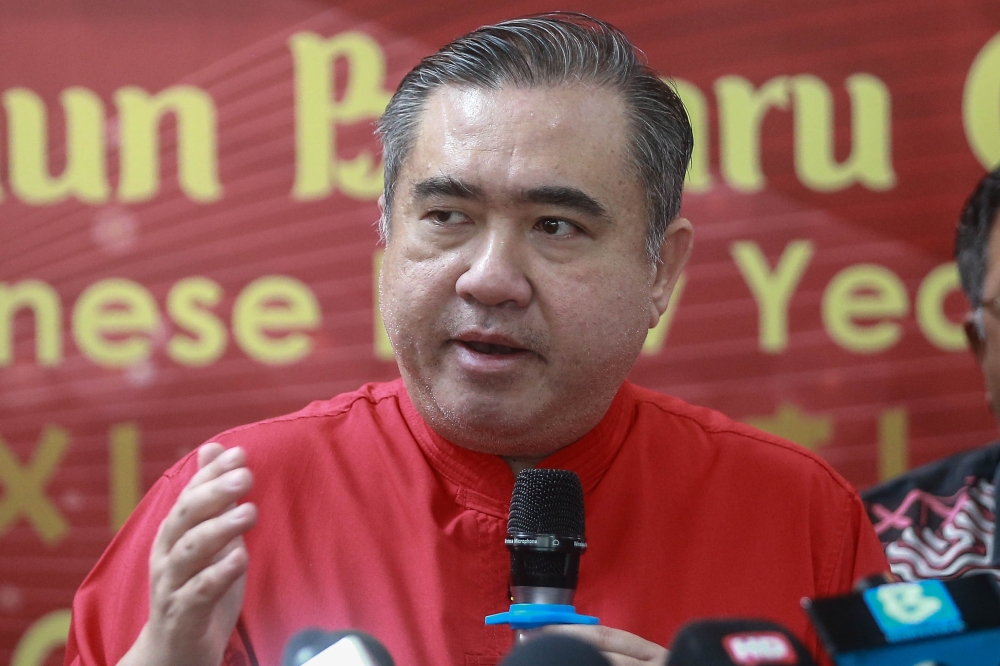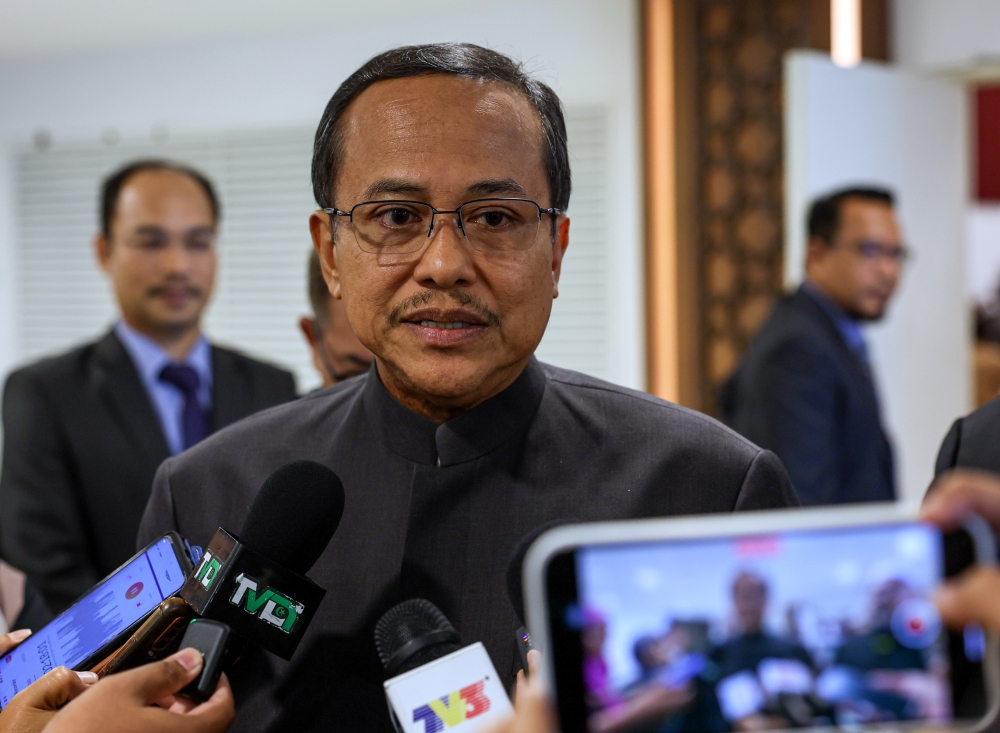KUALA LUMPUR, Nov 9 — Now-fugitive Low Taek Jho was present at former prime minister Datuk Seri Najib Razak’s house to meet a banker about 1Malaysia Development Berhad’s (1MDB) US$2.318 billion purported overseas “investment”, a former 1MDB CEO insisted in court today.
Mohd Hazem Abd Rahman said this while testifying as the 10th prosecution witness in Najib’s trial involving more than RM2 billion of 1MDB funds.
Najib’s lawyer Mardhiyah Mohamed Sirajkumar today sought to cast doubt on whether Low — better known as Jho Low — had actually attended the November 28, 2013 meeting at Najib’s private residence on Jalan Langgak Duta in Kuala Lumpur.
Hazem had previously testified that he had upon his arrival at Najib’s house at around 5pm seen Low and Najib talking to each other, and that the meeting subsequently began 10 to 20 minutes later with Najib, Najib’s then principal private secretary Datuk Azlin Alias, Hazem himself, 1MDB directors Tan Sri Ismee Ismail and Tan Sri Lodin Wok Kamaruddin, and 1MDB chief financial officer Azmi Tahir.
Hazem had previously also said BSI Bank Singapore’s managing director Yak Yew Chee, who was present at Najib’s house, then joined the meeting after the initial discussions between Najib and the 1MDB officers.
Mardhiyah questioned the truthfulness of Hazem’s testimony of Low’s presence at Najib’s house in that November 28, 2013 meeting, asking Hazem why he had not revealed this during a meeting between 1MDB and the company’s auditors KPMG the next day on the same US$2.3 billion purported investment.
Hazem rejected this idea as he maintained that Low had attended the meeting.
Mardhiyah: In your witness statement, you mentioned Jho Low was also present in this meeting. Why was it not disclosed with KPMG?
Hazem: Never supposed to share or raise Jho Low’s name in any formal meeting.
Mardhiyah: I say you were being untruthful when you said Jho Low attended the meeting with Datuk Seri Najib.
Hazem: Disagree.
Mardhiyah: You were being untruthful when you said Jho Low was present in Datuk Seri Najib’s residence for the meeting.
Hazem: Disagree.
Mardhiyah: You are just saying this now because you want to implicate Datuk Seri Najib as being close to Jho Low.
Hazem: I disagree.
At that time, the auditor KPMG had yet to sign off on its audit for 1MDB’s financial statement for the year ending March 31, 2013, as it was still pressing 1MDB for further details on the company’s alleged US$2.3 billion investment abroad.
The alleged investment by 1MDB — via six promissory notes claimed to be worth US$2.318 billion but now known to be worthless pieces of paper — were “invested” in the purported Cayman Island-based hedge fund Bridge Global Absolute Return Fund SPC, with the Singapore branch of Swiss bank BSI Bank acting as the “fund manager” of the purported investment.
.jpg)
Hazem had previously testified of 1MDB’s efforts to explain the US$2.318 billion investment to KPMG, with BSI Bank also writing to the auditors to provide assurance on the investment’s status and showing the account statement for the investment.
Hazem had previously also testified that KPMG had later on December 15, 2013 met with Najib at night in the latter’s house regarding the same US$2.318 billion investment.
Hazem had previously testified that Najib had questioned in the meeting why KPMG had continued to raise doubts over the investment’s underlying asset after BSI Bank had produced the account statement, and said Najib had expressed his desire to KPMG that he would want to see the 1MDB account audit completed before December 31, 2013.
As KPMG did not close its audit of 1MDB’s 2013 financials due to continued dissatisfaction with the documents and answers provided and with 1MDB under pressure to have the audit report closed, 1MDB’s board of directors on December 31, 2013 then decided to terminate KPMG as its auditor and to replace it with auditor Deloitte KassimChan.
Hazem denies misleading Najib
Mardhiyah questioned Hazem on an email that Low had on November 28, 2013 sent to him, Azmi and Azmi’s deputy Terence Geh, 1MDB general counsel Jasmine Loo, which had contained explanations to be provided to KPMG such as the fund that BSI Bank had purportedly invested in for 1MDB had other shareholders besides 1MDB’s subsidiary and that detailed investment information therefore could not be given to KPMG.
Quizzed by Mardhiyah, Hazem today agreed “to a certain extent” that he and Azmi were under Low’s control as they took his instruction and carried it out in the meeting with KPMG the next day, but disagreed that he did so to 1MDB’s “disadvantage”.
Hazem also disagreed with Mardhiyah’s suggestion that both he and BSI’s Yak had allegedly “misrepresented” the risk profile of 1MDB’s US$2.318 billion “investment” via Bridge Global when it was in fact classified as a high-risk portfolio.
Hazem also disagreed that the claim — that the Bridge Global investment had confidential details due to the alleged mix of investors — was a misleading statement made to KPMG to divert KPMG from pursuing any information about the US$2.318 billion funds.
Mardhiyah questioned why Low had only sent the email to four 1MDB officials (Hazem, Loo, Azmi, Geh) and not to Najib’s aide Azlin, further suggesting that there was a scheme to cheat Najib.
“I put it to you, because you and Jasmine, Jho Low were concocting this scheme to deceive Datuk Seri Najib and KPMG from finding out the true value of Bridge Global,” Mardhiyah said, to which Hazem disagreed.
“Basically all of you were scrambling to find answers for the auditor because it was very close, your entire scheme of misappropriating funds would have been exposed, because of this particular requirement to submit your financial statements,” Mardhiyah said, to which Hazem also disagreed.
Hazem, however, later said that the confidentiality claim was not to mislead KPMG, and that 1MDB was just providing information to KPMG and that it would be up to the audit firm to decide whether such information is sufficient to complete the audit.
As KPMG continued to press for answers in order to complete the audit, Mardhiyah suggested that 1MDB then took further steps in December 2013 to allegedly mislead KPMG and attempted to satisfy the auditor, with 1MDB then obtaining a legal opinion from the law firm Wong & Partners which reiterated the confidentiality claim.
As Mardhiyah asked if 1MDB had not given the full facts and complete documents to the law firm before it wrote its legal opinion, Hazem said he did not know and said such questions should be asked directly to the law firm.
Hazem did not give any comment when Mardhiyah suggested that the law firm would have given a different legal opinion by qualifying 1MDB’s ability to rely on BSI’s claim of confidentiality.
Hazem then disagreed when Mardhiyah suggested that 1MDB had sought for the legal opinion in order to support the 1MDB management’s claim that KPMG was being “unreasonable and unprofessional” in pursuing more information before signing off on the 1MDB audit.
Hazem also disagreed with Mardhiyah’s suggestion that the ultimate purpose of the legal opinion was to “exert pressure on KPMG to stop pressing for details” on the 1MDB “investment”, further disagreeing with her suggestion that the ultimate purpose was for the 1MDB senior management to use it to justify to the 1MDB board for KPMG to be terminated as its auditor or for the purpose of showing KPMG to be “unnecessarily difficult” in preparing the audited financial statement.
As for the December 2013 meeting between KPMG and Najib in his house, Mardhiyah noted Najib had during the meeting — as the MOF Inc-owned 1MDB’s shareholder via his position as finance minister — had expressed concern about the delay in the auditing of 1MDB’s accounts and questioned why KPMG was unable to accept confirmation from BSI Bank on the US$2.318 billion investment.
Mardhiyah then tried to suggest that Najib was exercising “caution and due diligence by querying on why KPMG could not accept such confirmation”, but Hazem said he did not know.
Mardhiyah continued this line of questioning as she suggested that Najib had asked this question to KPMG as the 1MDB management was allegedly “feeding” Najib with the impression that KPMG was being difficult, but the judge noted that the witness would not know if they were asked what is the intention behind another person’s actions and that it would be a waste of time to ask about matters not within the witness’s knowledge.
Mardhiyah later questioned if information from Low — such as BSI being an international bank with a high rating of A3 by rating agency Moody’s — was provided to Najib for the 1MDB management to influence him into thinking that KPMG was being unreasonable in asking about the BSI Bank’s reputation or standing, with Hazem replying: “It was given to Datuk Seri Najib, I believe, for his info.”
Mardhiyah: And the information was crafted this way to sort of influence Datuk Seri Najib that KPMG is being too much, asking too many questions.
Hazem: To a certain extent, yes.
Earlier today, Hazem had also confirmed that 1MDB always took a long time to prepare its audited financial statement, saying “probably six to nine months, sometimes even a year”.
Mardhiyah had also said that 1MDB’s audited financial statements for the financial years 2011, 2012 and 2014 were all submitted within the same year, except for the financial statement for 2013 which was only submitted on March 28, 2014 when the allowed period to submit to the Companies Commission of Malaysia is up to seven months.
The trial before High Court judge Datuk Collin Lawrence Sequerah resumes tomorrow, with Mardhiyah expected to further cross-examine Hazem.
On the first day of Najib’s 1MDB trial, the prosecution had said it would prove that Low was allegedly the “alter ego” and “mirror image” of Najib, and had also said it would establish facts that would result in an irresistible inference that both of them had acted as one at all material times.
